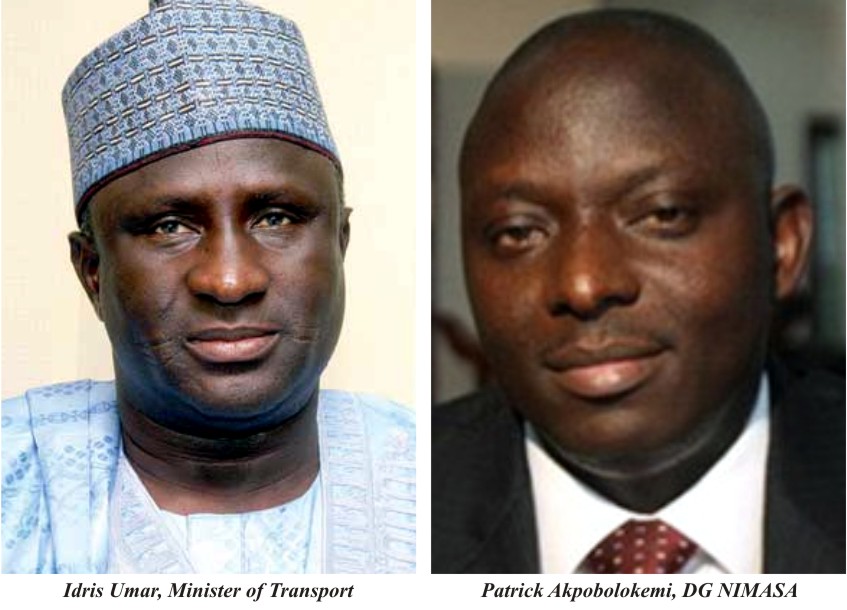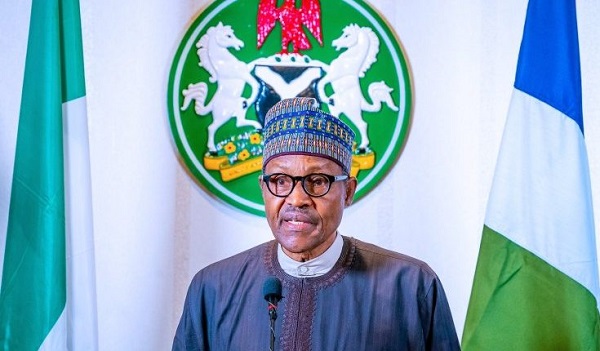Pit falls of Concession

Dear Publisher, Kingsley Anaroke, your official letter dated 12th August, 2014, requesting that i should do a forward note on the above topic, with emphasis to highlight the “Pit falls of Concession”.
Suffice, to say that, I will preferably dwell on highlighting the Pit Falls of Concession, while I leave you with the task of investigative journalism in enlightening the general public further on the subject matter.
In so doing, after several book reviews and websites visited, on this subject, i wish to align my position with that of Economist, HA-JOON CHANG (“Man Exploits Man”).
“It seems to be human nature for people to do their best to take care of things they own while maltreating those things that they do not”….
Indeed, Concession or Privatization has a lot of pit falls, which I will make frantic attempt to highlight without referring to any existing Concession, Contact Agreements, but to highlight on the topic under discus from a global research and observations.
Again, the thought of “Pit Falls” in the context of this discuss brings to mind the mentality and statement of foreign bankers during the middle of the 1980s Third World Debt Crisis: ” We are for free market when we are out to make buck and believe in the state when we are about to lose our buck”… Today, this self centered statement seems to be a guiding mentality of most existing and potential investors in the developing Countries with lax regulatory capacity.
Usually Government will want to concession or privatize their worst performing public enterprises. Such is always contemplated when it is politically impossible to restructure a public enterprise or embarking on such want without a strong government commitment to concession or privatization exercise.
A lot of problems in public enterprises may be solved without privatization or concession. The most recent example is in South Africa, where it only rebranded itself, metamorphosed from South Africa Port Authority to Transnet Port SA. To reengineer and improve ports efficiency, it “out sourced” the departments where it has poor managerial ability under a contract or MOU.
The first Pitfall of note is to reiterate the fact that, in most instances the private sector investors are not too keen or willing to finance a venture despite its long term contract viability, for the fear and thought of “taking risk”. Simply because it believe that money can move around quickly, capital markets have an inherent bias towards short term gains and do not like undertaking risky, large scale projects with long gestation periods. Only few investors are committed to taking risk in the green field enterprise (e.g. PTML at Tincan Port, Lagos) majority of investors prefer to acquire from weak developing countries brown field enterprise (already existing public enterprise).
Therefore, when contemplating a concession programme, governments have been advised to adhere strictly to the following concession indicators:
a). Concession the ripe/right enterprises.
b). Concession at the right price.
c). Concession at the right scale.
d). Concession at the right timing.
e). Concession to the right operator.
f). Concession with right sets of tariffs.
g).Concession with the right regulatory regime.
Permit me to offer a further explanation on the above indicators, as follows:
For emphasis sake, it is globally advised that, when embarking on Concession programme, adequate care must be taken to ensure that the right public enterprise is concessioned to the right concessionaire at the right Price, subjected to the right regulatory regime with the right competitive tariff. If not, the aims of such Concession is not likely going to work nor be achieved 100%. This is because fair, competitive services and operational tariffs will be eroded leaving room for private sector monopoly which is more dangerous than public sector monopoly, thereby promoting inflation and capital flight via cash repatriation by the foreign concessionaire.
However, Concession sometimes works well, but can be a recipe for disaster, especially in developing Countries that lack the necessary regulatory capabilities. Even when concession is the right solution to redeeming a worst performing public enterprise, it may be difficult to get it right in practice.
For clarity sake, it must be stated that, lack of competition and ineffective regulations under a private port sector regime breeds conformism, bureaucratic red tape, ( operational delays, haggling, etc), inflation, corruption (extortion and exploitation), etc.
THE ECONOMIC THEORY OF MONOPOLY
One of the critical consideration to a concession program is to creat a competitive port environment as opposed to monopoly. It is note worthy to expansiate the following theory of monopoly, this may peharps guide in your further investigation:
” In a competitive port sector, an operator can not have the freedom to set tariff at will, as a rival can easily undercut him until a time when lowering the tariff further will result in a loss. In the other hand, the monopolist operator can group themselves into a league and then decide the tariff it charges by varying the cargo handling, so that it can only handle up to the cargo capacity/volume where it’s profits is maximized.
This level of output is under normal circumstances, lower than the socially optimal one, which is where the maximum tariff a shipper is willing to pay is the same as the minimum tariff that the operator requires in order not to lose money.
When the amount of cargo handled is less than the socially optimal volume, it means not serving some shippers who are perfectly willing to pay more than the minimum tariff that the operator requires but who is unwilling to bear the tariff at which the monopoly operator can maximize its profit. The unfulfilled desire of those neglected shippers is essentially the social cost of monopoly”.
The first dilemma in concessioning a Public enterprises with natural monopolies or those enterprises that provides essential services, especially if the regulatory capability of the state is weak is unstructured concession processes. Where enough time is not taken to reevaluate the particular enterprise, set up a transparent biding process, give enough room for potential investors evaluate risk, choose a concession model ( that will protect the interest of the Masses whose common wealth may likely be transferred to a private individual), articulate a doable performing contract agreements, with a performance indicators, structuring a regulatory frame work, set up a monitoring mechanism, etc. Any short fall to this parameter is a potential “PitFalls” in the long run.
It has equally been noted that when there is a natural monopoly, the operator can charge what ever it wants to, as shippers have no regulator to turn to.
But when monopoly is perfected via unstructured port concession processes, the operators will always secure through skillful lobbying, a series of tariff hikes that were not formally permitted under the original concession contract term, but if there is a firm regulator in place who will refuse to grant such tariff hike, the operator may likely walk away.
However, Public enterprises should be sold at the right price by the Government as the trustee of the citizens assets. If the Government concession an enterprises too cheaply, it is invariably transferring public wealth to the private individual. This raises an important distributional question.
Worst still, if the public wealth transferred is taken outside the country where the private investor is based, there will be a loss in national wealth. Though, national citizens can equally stash the money away.
For the Government to concession at the right price, the concession programme must be done at the right scale and with right timing. For instance, where Government concession too many public enterprises within a relatively short period, this would adversely affect their prices, resulting to “fire sale” weakens the government’s bargaining power, thus lowering the proceeds it receives. This being the consequence effect of unstructured port concession process.
Government is advised to concession public enterprises only when the stock market conditions are good. Again, it is a bad idea to set a rigid deadline for concession, which the IMF insists on, such a deadline will force the government to privatize regardless of market conditions.
In addition Government should ensured that public enterprise are concessioned to an operator that has the ability to improve their log term productive performances, such an operator must be good at financial engineering rather than at managing the enterprises in question.
Concession can help a Country’s economic future only when public enterprises are concessioned to a concessionaire who have the ability to improve their long – term productive. Government must demand that a Concessionaire has a proven track record in the industry, especially those who are good at financial engineering rather than at managing the enterprise in question. It is generally noted that, often, public enterprises are corruptly concessioned to people who have no competence to operate them well, thereby corruptly transferring public enterprises to a new oligarchy ( private cartels).
It’s been proven that, the concessioning process in some Country is riddled with corruption, with a large part of the potential proceeds ending up into the pockets of a few insiders ( officials) rather than the coffers of Government ( insider racketeering ). Some times transfers are corruptly effected illegally, through bribery. The other way round the government official can as well legitimizes the process as an insider, who acts as a consultants and gets high fees in the process.
Indeed corrupt officials have incentive to push through privatization at all costs, because it means they do not have to share their bribe with their successors and plans to cash in all future bribery streams originated via concessioning processes.
Emphatically, concession may not necessarily reduce or eliminate corruption, because the private investor can be corrupt too, in most instances, a concessionaire driven by “profit maximization Mindset”, often deploys or approach this quest by hook or crook, especially in a lax regulatory regime.
From a Statistical point of view, the Concession of a natural monopolies or essential services ( enterprise), also fails if they ate not subjected to the right regulatory regime afterwards, as mentioned earlier. Therefore, a. concession without an appropriate regulatory capability on the part of the government may replace inefficient but politically restrained public monopolies with inefficient and unrestrained private monopoly.
In concluding this piece, permit me also to say that, in most developing Countries today, concession is contemplated with the concept of ” Controlling Stakes”. This concept provides for the Government to control stake in a will be concessioned enterprise shares. Depending on the holing structure, a holding shares of 30% represents an effective control over the said enterprise which is considered a Controlling Stake.
This is the concept upon which the Concessioning of Tema Port in Ghana was contemplated. Ghana Port Authority after packaging Tema Port for concession, opened up its biding process. At the end, it invited the most suitable two operators ( namely, APTerminals and Bollore Terminals), that met their terms. It offered them, a 70% concession term and retained 30%.
After considerations, the two operators accepted and signed up the agreement (as designed by the Port Authority) and merged into a consortium, now: Mediterranean Port Services (MPS)., Ghana.
This Controlling Stakes made the Ghana Government to be involved in the aspect of monitoring Performance and retaining reasonable profits and recruitment of workers, etc
I do hope, with this few words of mine, I have been able to offer a reasonable guide to your project.
The chairman of the Summit, who is also the Chairman/Technical Adviser of Lubcon Group, Engr. Jani Ibrahim posited that Government must strive to eliminate artificial and avoidable distortions to protect the manufacturers, reduce import duty on raw materials to ensure continuity and to encourage local and foreign investors to participate more fully.
By Eugene Nweke








